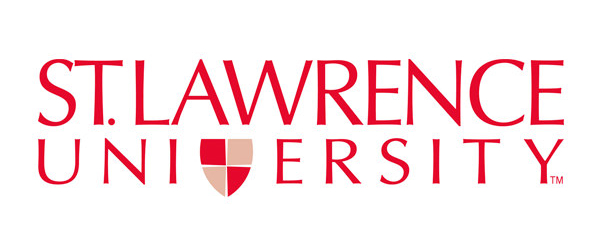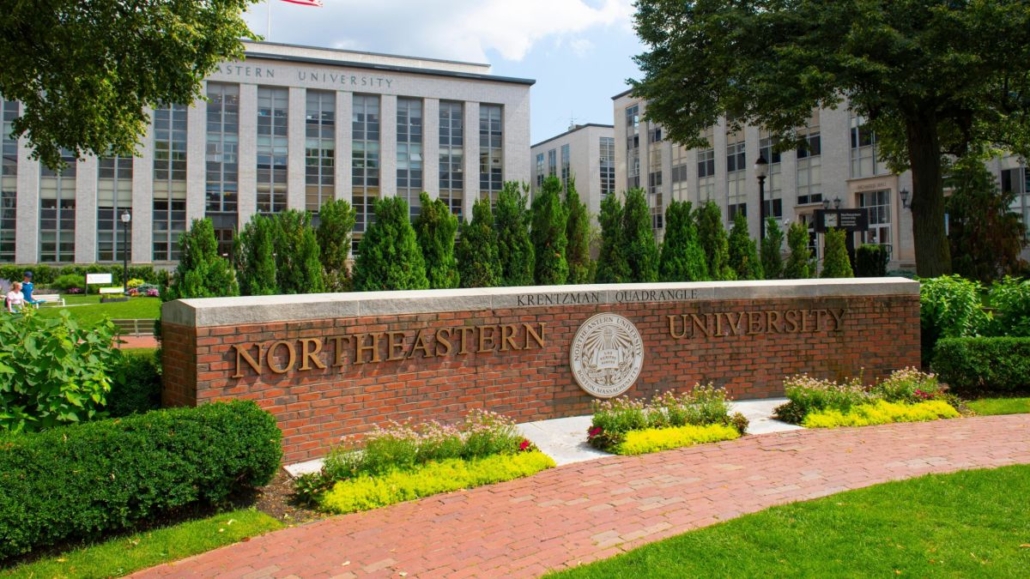 China School Board
China School Board
(One Seat)
DAWN CASTNER
Why are you running for school board?
I am running for the school board because I believe in contributing to the community in the best way I am able at this time.
I think what best qualifies me to participate on the school board for the next three years are the following; consistency, the ability to make informed, unbiased decisions based on strong background knowledge, and a genuine interest and concern that each and every student in District 18 receive the best possible education.
- Consistency as demonstrated by successful positive participation for the past six years on the RSU#18 school board
- Background Knowledge: My prior experience in the field of education as a highly qualified educator spans 5 uninterrupted decades. My Educational background includes 36 Graduate credits beyond a Masters in Education.
- Each and every student deserves the best possible education to support their development and growth. Over the years I have observed the dedication of the RSU#18 employees and it is formidable. This observation has spanned many years.
Four of our grandchildren have or are attending RSU#18, each unique in their own right, and each has had their educational needs more than met. Two are currently seniors, having started in PreK. One is a Sophomore in college who started at the primary level. One is currently in fourth grade.
I have seen firsthand that RSU#18 students are recipients of caring, nurturing environments where academic expectations reflect high standards, where social and emotional needs are addressed, and the importance of being respectful and responsible for one’s behavior is a basic learning expectation.
I think the biggest challenge facing China schools today may be different than the biggest challenge faced by the China schools yesterday and again different, albeit possibly the same as the biggest challenge facing the China schools tomorrow.
Without a crystal ball, a way to analyze challenges, big or small may be to identify the areas of greatest need, perhaps based on surveys, gather data, analyze and act.
I think it is a process that is fluid, gathering input, drawing conclusions, acting on those areas that can be addressed, and planning for future actions as need be within a collaborative and collegial forum.
WALLACE POOLER
Why are you running for school board?
My wife and I have three children in school, two of whom attend China Middle School. For the first time in years, my career offers me the flexibility to become more involved within the community. What better place to begin than with the school board? The school board is where I can best represent the interests of my own children, their classmates, and our entire community.
What do you think best qualifies you?
I have many years of experience volunteering on various boards and committees. It is often an exhausting and thankless role, but it is one I am familiar with. I believe my experience working in healthcare administration, an industry arguably as divisive as education, has prepared me for the many challenges our RSU, and greater society, is faced with.
What is the biggest challenge facing the China schools and how would you seek to remedy that?
COVID-19 threw a wrench into an already faltering industry. I believe our district navigated the complexities and ever-changing guidelines better than most, however our children and educators didn’t avoid the challenges altogether. This past year, China Middle School experienced tremendous turnover, even amongst younger, less experienced teachers. We need our schools to become employers of choice for the best and the brightest, so our children can realize equal or greater opportunities than their peers throughout the state, and beyond. These challenges can be addressed by developing the RSU organizational culture, prioritizing employee engagement and accountability, and by doing a better job of listening to our constituents.
DARRELL STEVENS
Why are you running for school board?
My interest in running for a position on the board is purely one of service. I believe we need to put the focus on educating all of the children in our district in order to set them up for future success. While I have never served on a school board, I bring almost 40 years of experience from my military career in many different positions, as well as my college education in business. I have the ability to communicate and work as a team member, and have the integrity required to take full responsibility for my actions if elected.
My wife and I moved to China 11 years ago with our two children. Both have since graduated from Erskine Academy and attended college. Our daughter is a speech-language pathologist, and our son works full-time in sales Verizon. My wife and I have both retired after fulfilling careers. She spent hers as a cardiac nurse and I spent mine in the military as aircraft mechanic, pilot, adviser/manager.
What do you think best qualifies you?
During my last 10 years in the military, I served as the Senior Warrant Officer Advisor for the Maine Army National Guard. Overseeing the professional development and management of highly technical officers. I have a willingness to work with others to develop and establish effective solutions that will benefit our students and believe in listening to all points of view in order to develop the best solutions for the community.
In my past leadership positions, I have served on state, regional and national boards.
2013-2017: Warrant Officer Senior Advisory Council (WOSAC) National Chairmanman.
2012-2013: WOSAC National Vice Chairman.
2010-2012: New England, WOSAC Chairman.
The WOSAC represented over 10K Warrant Officers across the Army National Guard, in which the committee was responsible for programs and policies in the area of education and training.
What is the biggest challenge facing the China schools and how would you seek to remedy that?
I believe the most important issue we can address as a community is one of good schools. Upon graduation, whether our children decide to go directly into the workforce, to college, or to trade school, I believe education is the solid foundation necessary to continue building a productive society. Whether you are a long-time resident or a family in search of a new community to call home, I want you to be confident that our schools can provide your children with that foundation necessary for limitless possibilities. If elected, I would use data and communication to ensure our schools continue striving for excellence while engaging the community. I would always advocate for our district and collaborate with stakeholders to develop effective solutions.
House of Representatives
District #62
LINDSAY HARWATH (I)
How would you improve or reform educational opportunities for residents of Maine?
Public Education should be just that. Public. Recently Maine’s public college/universities have been made free for recent graduates. It should remain free for all Maine residents. Many of the needed jobs in our state require certification. Whether that is a trade job or in healthcare. Opening up these training programs without cost to students will more quickly fill needed positions. There are plenty of college graduates who never found employment in their field and are looking to make a switch, but in this economic climate, the burden of paying for another training is not possible. Open up these programs and the benefit to society in quick employment into desired sectors far outweighs the cost. There are other avenues such as paid apprenticeships, which I desire to see expanded, but the burden for change in those areas falls to private businesses and not the Legislature as they are not publicly owned.
If you are elected, what will be your top three priorities in the Maine legislature?
Create a housing crisis task force. Identifying where housing shortages are around the state, hire qualified architects, contractors, tradespeople etc and make a plan to create affordable housing in those areas.
Deploy the National Guard as the extra labor needed to get buildings up in a timely manner to meet this crisis head on. At the current rate of building it will take 20+ years to build enough housing for the number of people currently seeking a home. One of the largest shortcomings in meeting the demands of the housing crisis is the workforce needed to build on schedule. This is a task perfectly suited to the National Guard, to help the state in a crisis. Outside of this task force build project, 75 percent of all new construction should be affordable housing until the need is met. Provide incentives for any rent-to-own apartments or single family homes.
Fund Education at higher levels on the state side to provide relief for local municipality budgets. Ensure educators and staff are supported in their wages and in their safety to be who they are and have control of curriculum in the classroom. Remove the burden of standardized testing to free more time for learning. Our teachers understand the needs of their students and we should trust the people we’ve hired to do this much needed job.
Equality for all. Codify the right to bodily autonomy into the state constitution. The right to choose the healthcare that’s right for you and your children? That’s bodily autonomy. You want control of when you wear a mask? That’s bodily autonomy as well!
How would you improve broadband access for underserved communities in Maine?
Currently there are tens of millions of dollars from federal and state funds being allocated to Maine towns to expand access, especially in rural areas. I would be in favor of expanding that fund if we see it is not going to fully cover the need. I would also give priority to any projects in which the public utility would be consumer owned. Please note that consumer owned utilities are not government owned, but are owned by the people that use the services. This brings cost down by not paying shareholders or foreign entities who have invested in them.
How would you work to alleviate the labor shortage in Maine and attract younger families to the state?
I am so very tired of this question being formed as a labor shortage. That puts all the onus onto workers. What we really have are a shortage of jobs that pay a living wage, especially now with record high inflation. Childcare services are hard to find, and when they are, the cost is out of balance with wages for parents, making the balancing act of working parents nearly impossible. I will never say that childcare is “too expensive” because it’s not.
Education is key when trying to attract young people to return, remain, or relocate to Maine. Public education at the University/specialty certification level like I discussed above will be a huge driver. For young families, having a strong public school system pre-k through 12th grade is a top deciding factor when moving. I have four children in the public middle and elementary schools, and I’m the only candidate in this election that will have children in public school during their entire term as legislator. Our education staff needs more support. This fiscal year Maine will finally be holding up it’s agreement for funding to our public schools. But we already know it’s not enough. By shifting most of school budgets to the state level it will create more equitable funding across the board for schools and lessen/remove the burden from local municipalities. The minimum wage for teachers and staff is not enough and doesn’t compete with other states. Lastly, having public schools that are a safe environment for children and educators to be exactly who they are, to teach and learn the truth of history and the world we live in, and have their creativity nurtured so that educators remain and students grow in knowledge and empathy for others, values sorely lacking in adults these days.
How would you provide for Maine’s aging population?
In the long-term the only way to take care of the generation before us is to strengthen the younger generation who no longer has the ability to care for parents and grandparents. Generations who will probably never see a return on the social security they’ve spent their life paying into or an ability to retire. In the short-term I would love to invest in mobile clinics which allow seniors to receive healthcare in their area. I would love to see Maine shift from mills and factories to manufacture needed medications, such as insulin, and bypass the greed of the pharmaceutical industry. Cost of medication is astronomical for everyone, but especially for seniors. Housing and safe living facilities for seniors is needed, which would be part of the Housing Crisis Taskforce I proposed earlier.
What are Maine’s strengths and how could we leverage them to position Maine for the future?
Maine is one of the most independent states in the country. One of two with independent members in both state and federal government. That is a key strength which flows to all sectors of life in Maine. Independence breeds leaders, not followers. We’ve seen this with our scientists at UMaine getting ahead of research and solutions to PFAS chemicals and aquaculture solutions to climate change, something I was proud to see at many farms and facilities as the only candidate on the AGCOM event for future legislators. Mainers need to lean in to that Independence. Our district’s largest voting group is third-party/non-party voters. We know the two party system is not the solution and will not save us from the battles we face. Lean in! Continue to break out of the constraints placed on us that stifle growth, education, empathy, compassion, revolution. Lean in! Give yourself and your children, our future, the space to grow, become who they are, and find lasting solutions to the devastating crises we find ourselves in with corporate greed, climate change, and systemic racism and bigotry. Be who you are. Be different. Lean in to your Independence!
KATRINA SMITH (R)
How would you improve or reform educational opportunities for residents of Maine?
A simple return to classical education will solve many of the problems we now face within our schools. Focusing on Reading, writing, science and Math and away from cultural issues and political ideologies will allow our children (and our teachers) to again concentrate on what is important and will take the rhetoric and disagreements out of the current equation. I would like to see Standardized testing greatly reduced to give time to the students to learn and teachers to teach. With a solid focus on education our children should continue to have the opportunities they seek in life. Increasing the Vocational Education track for students starting in Middle school also will increase the likelihood that all children can seek a career in the field that they feel most drawn to.
If you are elected, what will be your top three priorities in the Maine legislature?
- INFLATION: Mainers are struggling to stay in their homes, and provide food for their families and we must think fast and outside of the box to assist the people of Maine during this time. Immediately suspending the fuel tax to allow people to keep money in their pocket should be implemented, suspend tolls on trucks delivering food and fuel to Maine and implement an energy saving plan for people who have homes that are not efficient are a few avenues to start to address this problem. We must act NOW and not rely on further federal funds to get us through.
- Taxes: Maine ranks 4 within the nation for the highest tax burden and this is totally unacceptable. The Maine government has been funding pet projects with our hard earned tax money and we must refocus on what is important to Mainers and leave the special interest groups and private industry to fund their own way. We can eliminate and reduce the Maine people’s taxes with frugality and concern for people at the forefront of our minds.
- Lack of Industry. Maine is the 3rd worst state in the country to do business. Over regulation, taxes and a hostile legislative environment keep businesses away from Maine. This must change and we must do everything we can to ensure businesses want to come to Maine and want to stay here. Almost every problem in Maine (childcare, housing, health insurance) can be solved by our residents having high quality and good paying jobs.
How would you improve broadband access for underserved communities in Maine?
Mainers need to be connected, but government provided services are never the way. We must continue to research ways to bring internet access to our towns, but in a way that isn’t behind the times or overly cumbersome. I myself had 1.8mps service for 8 years and believe me it was horrible, but I believe the government should be pursuing private industry to upgrade and advance options. As a state we should be relentless in trying to solve this issue and if we have to provide incentives for private industry to continue to grow their products we must look at that as well.
How would you work to alleviate the labor shortage in Maine and attract younger families to the state?
The labor shortage in Maine is present due to many factors; the shuttering of numerous businesses during the extended lockdown during covid, continued funding of unemployment for able bodied workers and the lack of industry to provide good jobs. Overregulation, lack of license reciprocity and red tape keeps industry from setting up shop in Maine and working people see that and choose to leave the state to pursue a career. Prior to a Mills administration the sign leading into Maine used to say “Open for Business” and it will again after November 8.
How would you provide for Maine’s aging population?
Maine’s aging population absolutely needs to be watched over and cared for. I would like to see the Maine Council on Aging become even more prevalent and well run to ensure our Seniors and their needs do not get forgotten. The recent Property tax stabilization program was a bi-partisan bill passed to benefit seniors and their ability to freeze their property taxes, however this bill was federally funded and had no income cut off so I do worry about its long term ability to continue. We need to make sure that when we commit to helping our Seniors it is for the long term and truly gives them what they need.
What are Maine’s strengths and how could we leverage them to position Maine for the future?
Maine has a strong reputation for honest, hard workers and I believe any business would be happy to employ Maine workers and provide opportunities to live in a state in which the work life balance is unmatched. When we attract strong businesses to Maine we build a solid foundation for our people and our state. Higher paying jobs allow us to grow our tax base naturally which fixes infrastructure problems, funds schools and gives people quality healthcare, housing and childcare. We have to be laser focused on getting business to buy into Maine and we must elect a government that is fiscally responsible and focused on deregulation and growth. When business flourishes, all Maine people will flourish.
PAMELA SWIFT (D)
How would you improve or reform educational opportunities for residents of Maine?
The quality of a child’s education should not be determined by their zip code. Municipal funding of local schools is a huge portion of a town’s tax burden in rural Maine. I support the state continuing to fully fund their portion of educational costs at 55 percent. Perhaps it’s time to increase federal funding of schools in a manner that provides for quality education that is equitable for all.
I support making community college part of our nation’s publicly-funded education system. I also support programs that would make four-year College debt-free by a variety of options such as scholarships, grants, work-study programs, and service-oriented tuition forgiveness programs. I would also include more educational opportunities through vocational schools and apprenticeships.
If you are elected, what will be your top three priorities in the Maine legislature?
One of my top three priorities in the Maine Legislature would be to ensure access to affordable healthcare. I am a big proponent of universal healthcare. Without adequate healthcare, none of us can be our best, most productive selves. My vision of healthcare also includes dental, hearing, and eye care, lowering the cost of prescription medications, preventing and treating opioid addiction, providing care for mental health, and protecting reproductive rights.
Another top priority would be to address climate change. Our state’s average temperatures have already increased and this has created observable real-world concerns. On our farm, due to drought, there have been years where I’ve had to start feeding our sheep hay in August instead of December because the grass didn’t grow back after the first round of grazing. This dramatically increases the cost of production. Also, milder winters mean more ticks in the spring and fall resulting in a higher risk of contracting tick-borne diseases—not just for people, but for horses, cattle, and dogs as well. And Brown-tailed moths, the new scourge, are negatively impacting both quality of life and businesses—especially those involving tourism.
Addressing PFAS contamination would be my other top priority. Our understanding of the problem is only in its infancy and Maine is already a national leader in addressing this problem. Decades ago, farmers were encouraged to spread sludge and septage on their fields as “free fertilizer.” Now, as these forever chemicals have leached into the groundwater, contaminating people’s wells, their devastating health effects have become evident.
The state has launched a massive testing effort and is providing filtration systems for resident’s whose wells have been contaminated. My understanding is that the State is also offering to purchase contaminated farmland to provide relief for farmers whose livelihood has been destroyed. It is obvious, however, that we need to find a long-term solution to this problem, and the corporations responsible for the contamination need to be held accountable.
How would you improve broadband access for underserved communities in Maine?
The pandemic made it abundantly clear how important broadband internet is for all of our Maine residents. Access to affordable, reliable high-speed internet helps attract and keep young families and businesses in the area—this is crucial for sustaining rural Maine communities. High-speed internet’s top benefit is in providing greater opportunities for economic development. I see bringing broadband to all of our underserved communities as important as was the Rural Electrification Act of 1936.
Palermo, along with four neighboring towns have joined together to form a Broadband Utility District to build out a municipally-owned fiber-optic network. Thanks to the hard work and dedication of a visionary team of volunteers, the newly formed corporation is in perfect position to take advantage of federal and state grants to make broadband for all our residents a reality. This model could be replicated all over the state of Maine.
How would you work to alleviate the labor shortage in Maine and attract younger families to the state?
First, the underlying problems pushing workers to leave Maine must be addressed. Employers will be unable to hire labor if potential workers cannot find affordable housing or adequate childcare. Once these barriers to employment are removed, the focus can be on how to attract younger families to the state and incentivize them to stay.
Many incentives could be employed such as signing bonuses, health insurance, flexible schedules, remote work options, or other benefits. Offering public community college, vocational school, and apprentice opportunities would create a homegrown well-educated, well-trained, and highly-skilled workforce. Another good long-term incentive would be to forgive student debt if the employee works for a predetermined number of years.
How would you provide for Maine’s aging population?
Most of our elders would like to age in place. The best way to assist in achieving this goal is to remove the preventing barriers. Transportation is often a major limiting factor to independence for the elderly. Seniors, especially in rural areas, would benefit greatly from a small, affordable, reservation-based public transportation system. Access to healthcare is another crucial element. Attracting more healthcare providers to rural Maine, as well as increasing access to telemedicine would be a big help. Lowering the costs of prescription medications is of paramount importance and can be achieved through legislative means. Providing heating oil assistance and real estate tax relief would also provide security for Maine’s aging population. Implementing these measures would go far in keeping our elderly independent and able to age well in their homes.
What are Maine’s strengths and how could we leverage them to position Maine for the future?
Maine’s greatest strength is its natural beauty. The great outdoors is what attracts people to our state and what entices them to stay. Yankee ingenuity is another strength that allows Mainers to flourish. We can leverage that strength by bringing broadband to rural areas which will allow for greater entrepreneurship. Natural resources are another strength; harnessing them to advance clean energy such as solar, wind, hydropower, and tidal energy will enable Maine to become energy independent while using homegrown, renewable sources.
I see Maine finding the sweet spot in life—balancing the necessity of industry with preserving the beauty of the natural world, understanding the importance of meaningful work and the value of recreation and time with family. The future of Maine will be what it is today—the way life should be.
House of Representatives
District #65
TAMMY BROWN (R)
How would you improve or reform educational opportunities for residents of Maine?
I believe we need to prioritize getting back to basics. As a result of COVID, kids lost too much time in the classroom and test scores are declining. I believe our schools need to get back to the basics and focus on math, reading, writing, history and civics. Parents need to be empowered to engage in education and deserve a voice if they have concerns about what is being taught in the classroom. I would advocate for more transparency in our schools as well as more opportunities for after-school care for working parents.
If you are elected, what will be your top three priorities in the Maine legislature?
The most immediate thing we can do as a state is focus on reducing the overall cost-of-living by addressing the high cost of home heating oil, groceries, and electricity. Our elected officials need to stop bickering about partisan politics and roll up their sleeves and get to work. Too many Maine families are facing tough choices this winter, and I am. committed to doing everything Maine can to ease the burden of inflation.
How would you improve broadband access for underserved communities in Maine?
Broadband is critical for a state like Maine, especially after the pandemic. During the pandemic we saw people moving to Maine with the shift to remote work. I believe that is likely to continue and the workplace is changing. I believe state government should be a partner to the private sector to expand broadband to those areas that both want and need it. Government has a role in the effort, but the private sector must lead the charge.
How would you work to alleviate the labor shortage in Maine and attract younger families to the state?
First and foremost, if you are able to work – you need to work. I am a small business owner. I know firsthand how damaging the long-term impacts of the pandemic have been on the workforce. We need to stop promoting policies that pay people to stay home. For example, this administration removed work requirements for welfare benefits for able-bodied individuals. I support reinstituting those requirements. I also support investing and promoting career and technical education to younger ages to ensure those kids who don’t go to college have ample opportunity to learn a skill and build a good paying career.
How would you provide for Maine’s aging population?
I am very worried about Maine’s elderly population, especially those on fixed incomes this winter. We must address the high-cost of living including providing resources for those who need them most. For example, I support efforts at the state level to ensure we have robust resources for heating oil assistance. I also support efforts to increase the public assistance resources we have to ensure that those on fixed incomes have access to quality food. Lastly, we need to be neighborly. Check on your elderly neighbors this winter and donate to food pantries, if you can. We can get through this together.
What are Maine’s strengths and how could we leverage them to position Maine for the future?
One of Maine’s greatest strengths is its people. For example, Maine fishermen represent an iconic industry here in Maine. Our lobster industry is under attack by the federal government. We must push back on these burdensome regulations to protect our lobster industry. Our lobster industry is a critical component of Maine’s economy, and right now faces the biggest threat. We must do everything in our power to protect it.
OTHER RACES
HOUSE OF REPRESENTATIVES
DISTRICT #61
Richard Bradstreet (R)
Amy Davidoff (D)
HOUSE OF REPRESENTATIVES
DISTRICT #63
Scott Cyrway (R)
Unopposed
HOUSE OF REPRESENTATIVES
DISTRICT #64
Colleen Madison (D)
Ruth Malcolm (R)
HOUSE OF REPRESENTATIVES
DISTRICT #65
Bruce White (D)
Tammy Brown (R)
HOUSE OF REPRESENTATIVES
DISTRICT #66
Alicia Barnes (D)
Robert Nutting (R)
SENATE DISTRICT #15
Storme St. Valle (D)
Matthew Pouliot (R)
SENATE DISTRICT #16
David LaFountain (D)
Michael Perkins (R)



 The following area students at Cedarville University, in Cedarville, Ohio, have been named to the dean’s honor list for the Spring 2024 semester:
The following area students at Cedarville University, in Cedarville, Ohio, have been named to the dean’s honor list for the Spring 2024 semester: St. Lawrence University, in Canton, New York, congratulates more than 730 students named to the dean’s list for the Fall 2023 semester. To be eligible for the Dean’s List, a student must have completed at least four courses and have an academic average of 3.6 based on a 4.0 scale for the semester.
St. Lawrence University, in Canton, New York, congratulates more than 730 students named to the dean’s list for the Fall 2023 semester. To be eligible for the Dean’s List, a student must have completed at least four courses and have an academic average of 3.6 based on a 4.0 scale for the semester. Residents of Chelsea and neighboring towns are invited to attend a special Valentine’s session of Chelsea’s free monthly Informational Luncheons. This luncheon will be the same format that community members are familiar with from previous events, but with an added emphasis on creating a welcoming and accessible environment for people living with dementia. The place settings, decorations, and menu have all been designed to create a safe and comfortable sensory experience for all.
Residents of Chelsea and neighboring towns are invited to attend a special Valentine’s session of Chelsea’s free monthly Informational Luncheons. This luncheon will be the same format that community members are familiar with from previous events, but with an added emphasis on creating a welcoming and accessible environment for people living with dementia. The place settings, decorations, and menu have all been designed to create a safe and comfortable sensory experience for all.

 China School Board
China School Board Northeastern University, in Boston, Massachusetts, is pleased to recognize those students who distinguish themselves academically during the course of the school year. The following local students were recently named to the University’s dean’s list for the Fall semester, which ended in December 2021.
Northeastern University, in Boston, Massachusetts, is pleased to recognize those students who distinguish themselves academically during the course of the school year. The following local students were recently named to the University’s dean’s list for the Fall semester, which ended in December 2021.